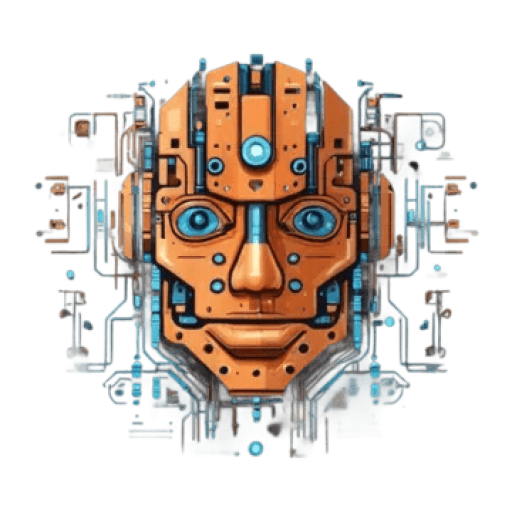Artificial intelligence is revolutionising business operations across industries, making it a competitive necessity for companies to adopt AI technologies. According to a survey by Gartner, 79 percent of corporate strategists agree that AI and analytics will be critical to their organisation’s success over the next two years.
As Harvard Business School Professor Karim Lakhani notes, “I have a strong belief that the future of business is going to be AI-powered.” With 73 percent of U.S. companies already adopting AI, businesses that haven’t started experimenting risk falling behind competitors. This article will outline five practical applications of AI that can boost productivity and efficiency, highlighting the potential benefits and return on investment.
By leveraging AI tools and machine learning, businesses can stay ahead of the curve and drive success.
The Current State of AI in Business
The integration of artificial intelligence (AI) in business operations is transforming the way companies function today. As noted by Jen Stave, launch director of Harvard’s Digital Data Design (D^3) Institute, in an episode of HBS Online’s Parlor Room podcast, “If you look around at the world today, we believe that we’re on the precipice of a major transformation.”
Why 73% of US Companies Have Already Adopted AI
The rapid adoption of AI across various industries, including manufacturing, finance, healthcare, and retail, is driven by its potential to improve efficiency and reduce costs. According to recent statistics, 73% of US companies have already integrated AI into their operations. For more information on how AI is used in business, visit Investopedia.
- Enhancing operational capabilities
- Improving decision-making processes
- Driving innovation and market disruption
The Competitive Advantage of Early AI Implementation
Early adopters of AI technologies have gained significant competitive advantages in their respective markets. By leveraging AI, businesses can respond more effectively to changing consumer expectations and market conditions. The use of AI for data analysis enables companies to make informed decisions, driving efficiency and revenue growth.
How to Use AI to Improve Your Business: The Fundamentals
As businesses strive to stay competitive, grasping the basics of AI implementation is essential. The integration of artificial intelligence into business operations is not just a trend, but a necessity for companies aiming to lead in their respective markets.
AI as a Driver of Digital Transformation
AI is a key driver of digital transformation across various industries. For instance, in healthcare, AI has enabled early disease identification, while in finance, it has automated fraud detection. By leveraging AI technologies, businesses can adapt and innovate, reimagining their processes and staying ahead of the competition. The role of AI in driving digital transformation is multifaceted, involving the modernisation of operations, enhancement of customer experiences, and creation of new business models.

Preparing Your Business for AI Integration
To successfully integrate AI into your business, several prerequisites must be met. First, a robust data infrastructure is necessary to support AI systems. Additionally, businesses need to assess their talent requirements, ensuring they have the necessary skills to implement and manage AI solutions. Organisational readiness is also crucial, involving a clear understanding of how AI aligns with overall business objectives. Developing a comprehensive AI strategy that outlines specific use cases and measurable goals is vital. Furthermore, cross-functional collaboration among stakeholders from IT, operations, and business units is essential for successful AI adoption.
By focusing on these fundamentals, businesses can harness the power of AI to drive growth, improve efficiency, and enhance decision-making. Effective AI integration requires careful planning, a willingness to adapt, and a commitment to leveraging AI as a tool for business transformation.
1. Automate Repetitive Tasks to Increase Efficiency

AI-driven automation is transforming the way businesses operate, making them more efficient and productive. By automating routine tasks, companies can free up valuable human resources for more strategic work. This not only enhances operational performance but also boosts employee effectiveness.
Streamlining Administrative Workflows
Administrative workflows are prime candidates for AI automation. Tasks such as data entry, document processing, scheduling, and basic customer service interactions can be efficiently handled by AI tools. For instance, AI-powered tools can automate the process of recording sales data, reconciling accounts, and reporting expenses, thereby reducing manual workloads and minimising human error.
According to McKinsey, AI and other technologies have the potential to automate work activities that absorb 60 to 70 percent of employees’ time. By leveraging AI automation tools, businesses can redirect their resources towards innovation, customer engagement, and business development activities.
AI-Powered Inventory and Supply Chain Optimisation
AI-powered inventory management systems can analyse historical sales data to optimise stock levels, reducing both stockouts and excess inventory costs. Moreover, AI can transform supply chain management through predictive analytics, route optimisation, and demand forecasting. This enables businesses to achieve significant time and cost savings, improving their overall operational efficiency.
By implementing AI automation tools, companies can enhance their supply chain management and operational processes, leading to improved productivity and reduced costs. Effective task automation can result in substantial gains in business efficiency, allowing companies to stay competitive in their respective markets.
2. Leverage AI for Enhanced Decision-Making

The use of AI in business is enabling organisations to make more informed decisions through advanced data analysis. AI systems can analyse vast quantities of structured and unstructured data to identify patterns, trends, and correlations that would be impossible for humans to detect.
Extracting Actionable Insights from Business Data
AI analytics platforms are revolutionising business intelligence by providing deeper insights and more accurate predictions than traditional analytics. This capability helps businesses make more informed, strategic decisions and reduce the risk of errors.
In a Deloitte survey, 59 percent of executives agreed that AI enabled them to glean more actionable insights from the analytics they were tracking. This is a significant advantage, as it allows companies to respond to changing market conditions more effectively.
Real-World Examples: How Shell and IBM Use AI for Strategic Decisions
Companies like Shell and IBM are already leveraging AI for enhanced decision-making. For example, Shell employs AI-driven predictive analytics to optimise its oil drilling placement. By analysing vast amounts of data from sensors on its drilling equipment, Shell can predict potential equipment failures or maintenance needs, allowing it to allocate resources more effectively.
Similarly, IBM’s Watson uses AI to analyse patient data and medical literature, providing doctors with evidence-based treatment options and helping them choose the most effective cancer treatments. These examples demonstrate how AI can drive strategic decisions across various industries.
By adopting AI-driven decision support systems, businesses can gain a competitive advantage through faster, more accurate decision-making. This is particularly important in today’s fast-paced business environment, where the ability to make informed decisions quickly can be the difference between success and failure.
3. Improve Customer Experience Through AI-Driven Personalisation

AI-driven personalisation is revolutionising the way businesses interact with their customers. By leveraging advanced data analysis, AI can help determine customer preferences, behaviours, and needs, making it easier to tailor products and services.
Implementing AI Chatbots for 24/7 Customer Support
The implementation of AI chatbots and virtual assistants is a crucial step in providing immediate and consistent customer support. These chatbots can anticipate customer needs, respond to inquiries promptly, and offer personalised recommendations.
For instance, businesses can utilise AI chatbots to handle customer inquiries, freeing up human resources for more complex issues. This not only improves response times but also enhances the overall customer experience.
Case Study: How Sephora Uses AI to Enhance Customer Engagement
Sephora, a leading beauty retailer, has successfully integrated AI into its customer experience through its Virtual Artist feature. This augmented reality tool allows customers to try on makeup virtually, analysing facial features and skin tones to provide personalised product recommendations.
Sephora’s AI-powered chatbots and assistants have significantly enhanced customer engagement, enabling the brand to become a “force to be reckoned with in the retail space.” By anticipating customer needs and providing tailored recommendations, Sephora has improved customer satisfaction and loyalty.
By adopting AI-driven personalisation, businesses can create a seamless customer journey across multiple channels, increasing engagement and loyalty. Moreover, predictive analytics can anticipate customer needs, enabling proactive service interventions before problems arise.
4. Create Compelling Content and Marketing with AI Tools

The integration of AI tools is transforming the landscape of content creation and marketing. Businesses can now leverage AI to produce high-quality, engaging content with greater efficiency.
AI-powered writing assistants can help generate various types of marketing content, including blog posts, product descriptions, email campaigns, and advertising copy. For instance, AI can assist in creating personalised product descriptions that resonate with target audiences, enhancing customer engagement and potentially driving sales.
Generating High-Quality Marketing Materials and Product Descriptions
AI tools can significantly improve the quality and consistency of marketing materials. By analysing existing content and brand guidelines, AI can generate new content that maintains brand consistency while adapting tone and style for different audiences and platforms.
For example, AI can help small businesses generate material for content marketing campaigns, saving time while delivering high-quality content. Additionally, AI-powered keyword research tools can identify relevant terms to include in web content, improving search engine rankings.
Optimising Social Media Strategies with AI Analytics
AI analytics can optimise social media strategies by identifying the best posting times, content types, and engagement opportunities across platforms. By analysing competitor content, AI can also identify gaps or opportunities in the market that businesses can exploit.
Moreover, AI can help maintain brand consistency across multiple content pieces while adapting tone and style for different audiences and platforms. This ensures that businesses can present a unified brand image across various marketing channels.
To implement AI content tools effectively, businesses should select the right platforms, establish effective workflows, and maintain human oversight. While AI-generated content offers numerous benefits, it is crucial to address potential concerns about originality, quality control, and the importance of human editing and refinement.
5. Drive Innovation and Reduce Operational Costs

AI is revolutionizing the way businesses operate, enabling them to innovate and cut costs simultaneously. By harnessing the power of AI, companies can accelerate product development, optimize business operations, and discover novel ways to meet customer needs.
Accelerating Product Development with Generative AI
Generative AI, a subset of AI that uses generative models to create new content from data, is particularly revolutionizing how businesses innovate. This technology enables companies to easily generate text, images, music, and other media, providing a wealth of new possibilities for creative and practical applications. For example, the fashion brand Stitch Fix uses AI to analyze customer preferences and fashion trends to provide personalized clothing recommendations. This AI-driven approach has allowed Stitch Fix to create a unique shopping experience that blends human expertise with machine learning to drive significant business growth.
Reducing Energy Consumption and Maintenance Costs
AI can also drive down business expenses by anticipating maintenance needs to optimize supply chains and streamline inventory management through predictive maintenance. Additionally, AI can significantly optimize energy consumption in facilities through intelligent monitoring and automated adjustments to lighting, heating, and cooling systems. This not only reduces costs but also contributes to mitigating climate change. Office buildings consume nearly one-third of the world’s energy and contribute roughly a quarter of global greenhouse gas emissions, making energy optimization a critical step towards sustainability.
By implementing AI solutions, businesses can achieve substantial cost savings and revenue opportunities. For instance, AI-powered predictive maintenance systems can reduce equipment downtime and repair costs by identifying potential failures before they occur. Furthermore, AI can identify emerging market trends and consumer preferences, enabling businesses to develop more targeted products and services.
Conclusion: Embracing the AI Revolution in Business
As we navigate the ever-evolving business landscape, it’s clear that artificial intelligence (AI) is no longer a luxury, but a necessity. The five practical ways to leverage AI technologies outlined in this article demonstrate its potential to improve operations, enhance decision-making, and drive growth.
Businesses of all sizes can begin their AI journey by starting with small, focused applications and expanding to more complex implementations. It’s essential to stay informed about emerging trends and capabilities in AI, as continuous learning and adaptation are crucial for successful implementation.
The transformative potential of AI extends beyond operational improvements, enabling new business models and revenue streams. To remain competitive, businesses must adopt AI solutions and stay ahead of the curve. For those looking to start or accelerate their AI implementation, we recommend exploring resources like the AI Essentials for Business course to learn how to compete in the age of AI.
By embracing AI and staying informed about the latest technologies and trends, businesses can unlock new opportunities and drive success. The future of business is AI-powered, and it’s time to begin your AI implementation journey with confidence and strategic purpose.
FAQ
What are the primary benefits of implementing AI in business operations?
The main advantages include increased productivity, enhanced customer experience, and data-driven decision-making. AI can automate repetitive tasks, provide personalised customer service, and offer valuable insights to inform business strategies.
How can AI chatbots enhance customer service?
AI-powered chatbots can provide 24/7 customer support, helping to resolve queries and improve customer satisfaction. They can also assist in routing complex issues to human customer service representatives, ensuring efficient issue resolution.
What role does machine learning play in AI-driven business solutions?
Machine learning is a key component of AI, enabling systems to learn from data and improve their performance over time. It is used in various applications, including predictive analytics, customer segmentation, and supply chain optimisation.
Can AI help reduce operational costs in businesses?
Yes, AI can contribute to cost reduction by optimising energy consumption, maintenance scheduling, and supply chain management. AI-driven solutions can also help minimise waste and improve resource allocation.
What are some examples of businesses that have successfully implemented AI?
Companies like Sephora and Shell have leveraged AI to enhance customer engagement and inform strategic decisions. These businesses demonstrate the potential of AI to drive innovation and growth.
How can businesses prepare for AI integration?
To prepare for AI adoption, businesses should focus on data quality, infrastructure development, and employee training. They should also identify areas where AI can have the most significant impact and develop a clear implementation strategy.















